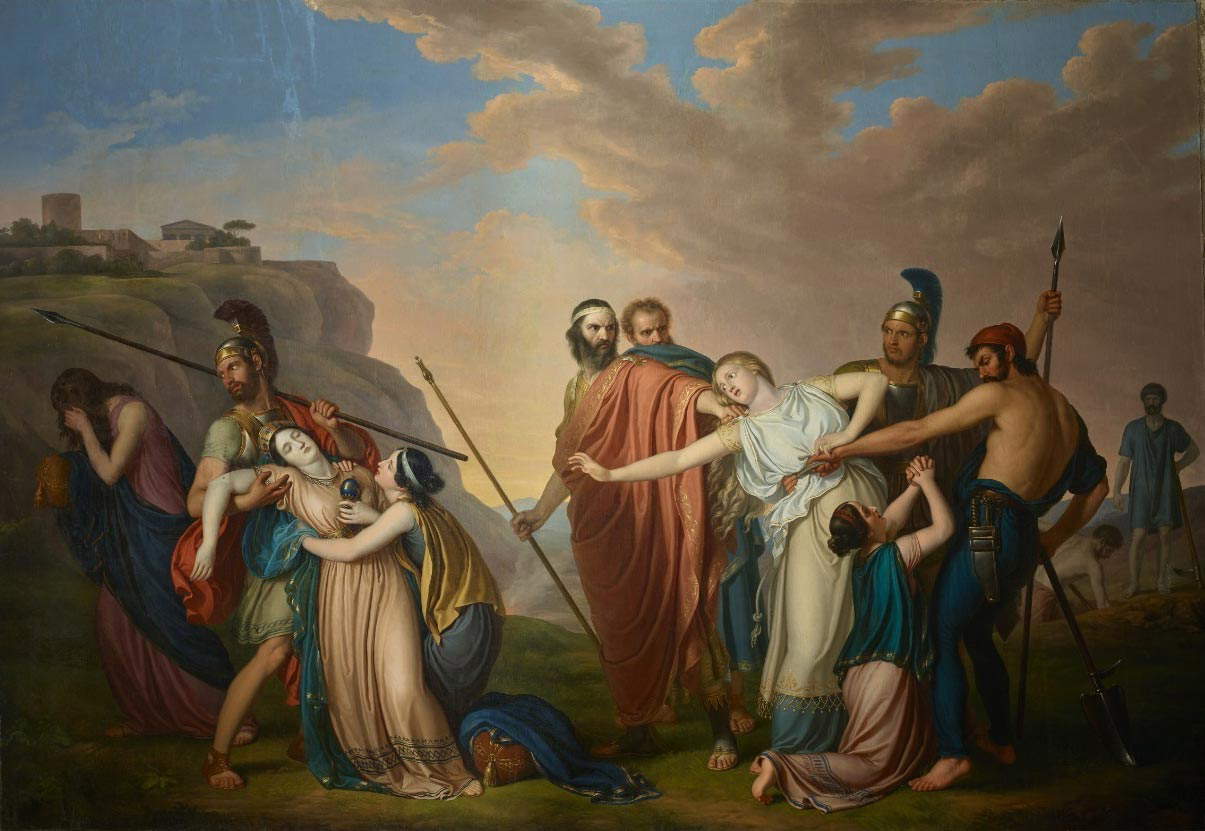Rummaging through the many communiqués that reach the editorial office every day, I learned that this year Mantua’s Festivaletteratura will dedicate two meetings to Carla Lonzi, a fundamental art critic and unparalleled theorist of second-wave feminism, probably the most courageous feminist writer our country has had the good fortune to know. The meetings will be held next weekend. The excellent news coincides with the announcement, made a few weeks ago, that the publisher La Tartaruga, now part of Nave di Teseo, will begin republishing Carla Lonzi’s entire oeuvre starting Sept. 5, beginning with the seminal 1970 Spit on Hegel . So storm the bookstores starting the day after tomorrow, and get yourself a copy of the essay. On the other hand, those who do not have or cannot spend those 15 euros or so, find a way to get it ad usum fabricae by whatever means their imagination suggests. It is not difficult.
One could begin by saying that Spit on Hegel is an electrifying remedy against the stupidity of today’s public discourse, especially where it is confronted with the crucial and painful issue of violence against women as happened in the last few days, when we witnessed the’unverifiable spectacle put on, especially through social media, by two factions of howlers who, between coarseness and wellthinking, have raged around an excerpt of about ten seconds from a television broadcast, battling to the sound of stories and tweets (i.e., the two most idiotic means to deal with a complex issue) and often forgetting, given the manner and tone, that the discussion was taking place against the backdrop of a harrowing human drama. Beyond the issue of little respect for the event itself, there is that of the hardening of positions, a natural consequence of a dialectic based on trivialization and invective over the airwaves, and particularly harmful if one has to think that such a sensitive social issue needs the involvement and contribution of everyone, female or male. At least that is what Simone de Beauvoir (also author of a timely critique of Hegel) thought when she pointed out that feminism is a common cause for both men and women, since men too can enjoy considerable advantages by living in a world that is fairer for women.
It will, of course, appear perhaps ill-timed (and perhaps to some even ridiculous) for a male to claim to be a feminist, since a male, while perhaps realizing the share of privilege (even if it were minuscule) that is granted to him merely because he was born equipped with testicles, can hardly identify with what a woman goes through: nonetheless, the male may find supreme utility in laying down the Twitter for a moment and, concomitantly, devoting a couple of hours to reading Spit on Hegel. Not least because, if he loves the concise sentences typical of social media, the epigraphic and beautifully messy style of Carla Lonzi’s essay will prove particularly congenial to him.
Dealing with art, Lonzi’s work reminded me of Giuseppe Diotti’sAntigone , a picture that those who can should see to accompany the reading (either live, going to the Accademia Carrara in Bergamo, which moreover has recently undergone a long and careful restoration, or also on the web: the museum has moreover published, after the restoration, a nice illustrative video), since it all starts from Hegel’s reading of the tragic heroine, identifying in the young sister of Polynices the personification of the divine law that responds to the reasons of use, ethics, family and heart, and in the tyrant Creon the human law that instead represents the norm of the state, of society. It is thus as if Hegel were saying that the feminine principle presides over the domestic and the masculine principle evolves into the public. Thus Lonzi: “Woman does not go beyond the stage of subjectivity: recognizing herself in the relatives and blood relatives she remains immediately universal, she lacks the prerequisites to split from the ethos of the family and reach the self-conscious force of universality by which man becomes a citizen. That feminine condition which is the fruit of oppression is indicated by Hegel as the motive of oppression itself [...]. In the feminine principle Hegel places the a-priori of a passivity in which the evidence of male domination is annulled. Patriarchal authority has kept woman subject, and the only value she is accorded is that of having adapted herself to it as to her own nature.”


Diotti’sAntigone is directly inspired, by the painter’s own written admission, by Alfieri’s tragedy, which, although it precedes Hegel’s reading of the Sophoclean character by some 20 years, appears more modern and also more complex, since in Alfieri’s drama not only a clash between two opposing value schemes takes place: in the scene of the confrontation between the two protagonists, Antigone is pitted against Creon not as the heroine who is adamant in her adamant defense of her own reasons, and thus a passive subject who at first moves driven solely by her own predetermined mission, and then accepts her fate as a woman who operates essentially within the framework of the few prerogatives that society grants her, but as a female who questions the authority of the male since it is based solely on her own personal gain (“What names hast thou the gods? Tu, ch’altro Dio non hai che l’util tuo, per cui se’ presto ad immolar e amici, e figli, e fama, se pur n’avessi”) and as the result of criminal actions aimed solely at the preservation of power. Alfieri’s tragedy then finds reason for further complexity in the character of Aemon, Creon’s son, who as a young man who must submit to paternal authority (and thus stands as a natural sodal of female instances: against “paternal authority,” writes Lonzi in Spit on Hegel, “the alliance between the woman and the young man has been created”), ends up moving against his own father, albeit when it is too late: he is Antigone’s betrothed, but she refuses marriage the moment Alfieri invents the scene of the possibility offered to her by Creon (either death for disobeying one of his laws, or marriage to his son). Lonzi again: “in the anguish of social insertion the young man hides a conflict with the patriarchal model. This conflict is revealed in the anarchic instances in which a global no, without alternatives, is expressed: manhood refuses to be paternalistic, blackmailing. But without the presence of his historical ally, woman, the young man’s anarchist experience is vague.”
Significantly, Diotti, in his painting, chose the moment of farewell between Antigone and her sister-in-law Argia, wife of Polynices and a character Alfieri takes from Stazio’s Thebaid , and a further symbol of Creon’s instrumentalization of the laws, since for the same infraction Antigone is condemned to death (her existence entailed a risk to the tyrant’s throne), while Argia, a foreigner, is given exile. Women, then, who suffer the nefarious consequences of a male authority, which will eventually succumb in turn before the villainy of their own actions.
Diotti and Alfieri feminists or proto-feminists, then? No, what immense nonsense: Alfieri is simply an interpreter of Sophocles’ Antigone who is more modern than Hegel, while Diotti is simply a translator in imagery of one of the moments in Alfieri’s tragedy, chosen perhaps because it is more apt to stir a mood in the mid-nineteenth-century audience. They are, however, useful in unveiling further meanings in the complexity, and they are useful in accompanying the reading of an essay, that of Carla Lonzi, which today stands as an antidote to the vulgar degradations of the debate around an issue that cannot but be supported by a male who wants to remain in the orbit of civilization. “There is no goal, there is the present. We are the dark past of the world, we realize the present”: thus Carla Lonzi concluded her writing.
Warning: the translation into English of the original Italian article was created using automatic tools. We undertake to review all articles, but we do not guarantee the total absence of inaccuracies in the translation due to the program. You can find the original by clicking on the ITA button. If you find any mistake,please contact us.